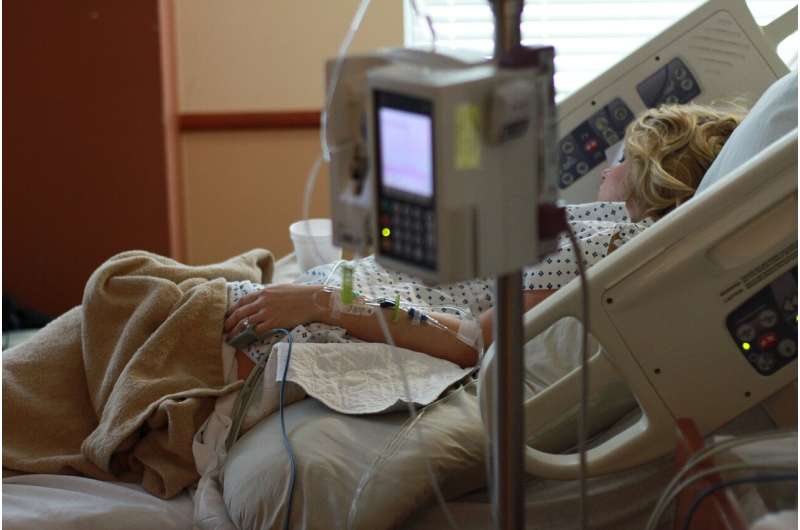Addressing serious illness with a serious question to clinicians

Three-quarters of older adults with a serious illness visit the emergency department during the last six months of their lives. Many will be admitted to the hospital. Some will never leave. But only a minority of patients have a conversation with their physician about preferences for end-of-life care before it is too late in their disease course for their wishes to be expressed. Identifying patients at greatest risk of near-term death early enough to engage in these conversations could both improve patients' experiences and drive down health care costs.
Investigators from Brigham and Women's Hospital have analyzed whether the "surprise" question, which elicits a clinician's overall clinical impressions about a patient, can help emergency clinicians identify older patients at greatest risk of death. Worded as, "Would you be surprised if this patient died in the next month?" this question was required of emergency clinicians treating patients at Maine Medical Center. Investigators found a strong correlation—if a physician or physician assistant answered that they would not be surprised, the patient was twice as likely to die in the next month. But they also found low sensitivity, meaning that clinicians only captured a small proportion of patients who actually died in the next month using the "surprise" question. Despite its low sensitivity, the "surprise" question may be a valuable tool for helping identify at-risk patients and prompting end-of-life conversations. The study's findings are published in JAMA Network Open.
"In order to best help our patients nearing the end of life, we need ways to identify patients who should be offered palliative care consultation or have serious illness conversations as soon as they are admitted," said corresponding author Kei Ouchi, MD, MPH, a physician in Emergency Medicine at the Brigham. "One of the advantages to the 'surprise' question is that it can provoke a conversation about palliative care—if a physician answers, 'No, it would not surprise me if my patient died,' the next thought naturally is, 'What am I going to do about that?'"
Ouchi and colleagues analyzed data from a prospective cohort of 10,737 older adults. Their data included answers from 16,223 visits (some patients were seen more than once). Patients were 65 years or older, received care in the Emergency Department and were subsequently admitted to Maine Medical Center from Jan. 1, 2014 to Dec. 31, 2015. Of these patients, 8 percent (893) died in the next month.
Emergency clinicians stated that they "would not be surprised" if the patient died in the next month for 2,104 of the patients. Controlling for age, sex, race, diagnosis and other variables, these patients were 2.4 times as likely to die as those for whom clinicians had said that they would be surprised.
The surprise question demonstrated 20 percent sensitivity and 93 percent specificity: clinicians accurately predicted death 685 times in the next month and inaccurately predicted death 2,639 times for that same timeframe; they accurately predicted that patients would live beyond one month 12,003 times and inaccurately predicted they would live that long 896 times. Overall, clinicians were 78 percent accurate in their predictions.
The authors note that their data are from a single, urban academic medical center with a largely white patient population, which may limit the generalizability of the findings. They also note that the study included physicians and physician assistants, and that looking more broadly to include other members of the clinical team, such as nurses, may help to improve the reliability and scalability of the surprise question.
"We need to shift our thinking about end-of-life care," said Ouchi. "Having earlier conversations with our patients has the potential to change downstream care. Patients who have serious illness conversations experience a 36-percent reduction in the cost of end-of-life care, with an average cost savings of $1,041 in the last week of life. Having tools at our disposal to identify patients at greater risk could allow us to have these conversations sooner and change what end-of-life care looks like in this country."





















